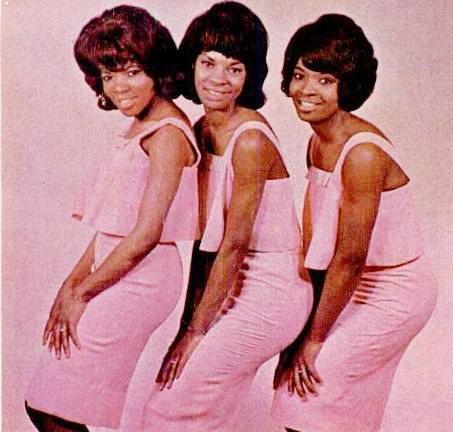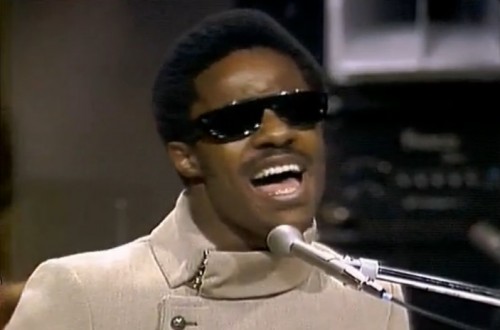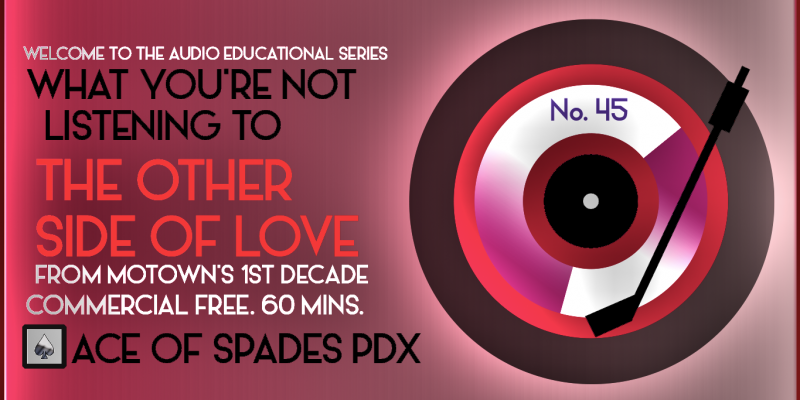Podcast: Play in new window | Download | Embed
Spotlighting songs for Singles Awareness Day with classic tracks and rarely heard gems from the Motown vaults. #blackhistorymonth #classicsoul #motown #valentinesday #singlesawarenessday
This program comes by request of Ms. Loretta W. of New York City. Several years ago, when I was producing this program privately, I received a message from her asking for a program for Valentine’s Day that focused on the other side of love: that is, topics that surround l’amour that are rarely discussed on this holiday. When I told her I would not only grant her request, I would make it a Black History Month tribute to Motown as well. Her reply: “That’s outtasite, baby!” I am revamping the series professionally with this program; better sound, and a whole new track list.

Motown Records, founded by Korean War veteran and former auto factory worker Berry Gordy Jr., was launched in 1959 as Anna Records, an independent company in Detroit, Michigan with about $700. It became the biggest Black-owned business in America for many years, and is synonymous with the entire 1960’s decade. Berry, a professional songwriter for Jackie Wilson, knew there was a huge pool of untapped talent outside the major entertainment hubs of New York and Los Angeles.
“Into the 1960s, I was still not of a frame of mind that we were not only making music, we were making history.”
Berry Gordy, founder, Motown Records
Gordy knew a hit when he heard one, and often spent a great deal of money grooming the raw talent for mainstream success. Even if he didn’t have an artist on a recording session, he often employed up to 450 people at one point during the 1960’s, and many future hitmakers worked as office/clerical workers or as personal assistants to those who were already in professional positions before their chart careers.

After Detroit’s devastating riots in 1967, coupled with major changes in the industry itself moving from the East Coast and the Midwest to California, Gordy himself ended the initial Motown era at the end of 1971 with moving the headquarters to Los Angeles. The phrase created for Motown by A&R man Al Abrams, “The Sound of Young America”, grew up in a hurry to reflect the truly tumultuous end of the decade. Motown also began to expand into films and other visual media for Black artists, leaving behind a legacy that remains truly unmatched for independent labels anywhere. Even Sub Pop Records, the Seattle-based label that spawned an entire new music scene in the early 1990’s, built their business model around the success of early Motown.
*indicates original mono single mixes
First Part
- Stop! In The Name of Love, 1965, The Supremes*
- What Becomes Of The Broken Hearted, 1966, Jimmy Ruffin
- If I Were Your Woman, 1970, Gladys Knight and the Pips
- Baby, Baby Don’t Cry, 1968, Smokey Robinson & The Miracles*
- Goodbye Cruel Love, 1962, Linda Griner*
- Nowhere To Run, 1965, Martha & The Vandellas*
- If You Really Love Me, 1971, Stevie Wonder*
- When I’m Gone, 1965, Brenda Holloway*
Second Part
- I Can’t Give Back The Love I Feel For You, 1968, Rita Wright*
- Standing In The Shadows Of Love, 1966, The Four Tops*
- Playboy, 1962, The Marvelettes*
- I Can’t Get Next To You, 1969, The Temptations
- The Bells, 1970, The Originals
- This Old Heart Of Mine (Is Weak For You), 1966, The Isley Brothers
- The One Who Really Loves You, 1962, Mary Wells
Finale
- I Heard It Through The Grapevine (with extended a cappella intro), 1968, Marvin Gaye
Love to you all.
Ben “Daddy Ben Bear” Brown Jr.
Host, Producer, Researcher, Audio Engineer, Webmaster and Writer
“Copyright Disclaimer Under Section 107 of the Copyright Act 1976, allowance is made for ‘fair use’ for purposes such as criticism, comment, news reporting, teaching, scholarship, and research. Fair use is a use permitted by copyright statute that might otherwise be infringing. Non-profit, educational or personal use tips the balance in favor of fair use.”
